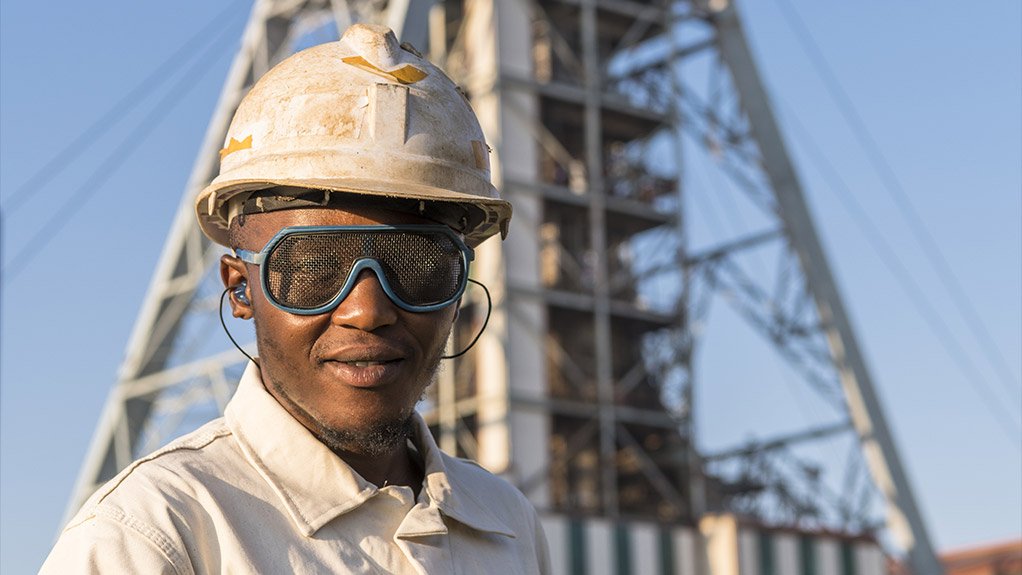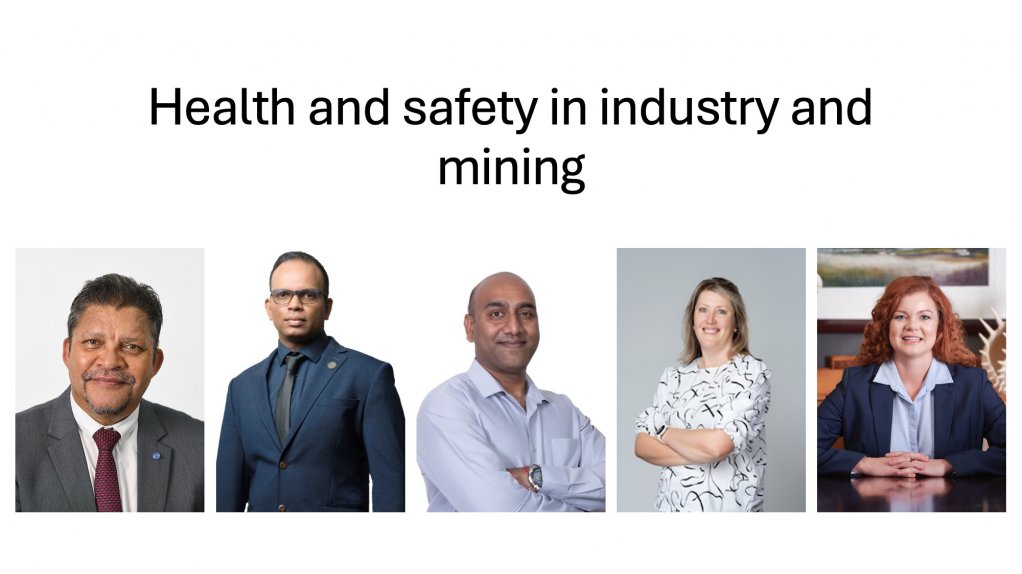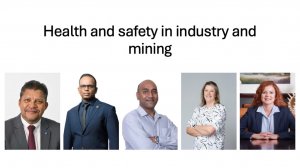Eyes, ears still the most vulnerable to occupational harm, expert says



Watch a panel of industry experts discuss advancing health and safety in South Africa’s industries and mining sector. Facilitated by South African Institute of Occupational Safety and Health President Dr Sanjay Munnoo, this webinar on health and safety in industry and mining is hosted in partnership with Electra Mining Africa. The panelists include Dr Jessica Hutchings, Head of Prevention for COID & Operations at Rand Mutual Assurance; Chris Campbell, the CEO of Consulting Engineers South Africa; Ingrid Osborne, the Co-founder and CEO of Saryx Engineering Group; and, Dushen Naidoo, Head of Safety and Sustainable Development at Minerals Council South Africa.
Eyes and ears remain the most frequently injured body parts of workers claiming compensation for occupational injuries and diseases in the South African mining and industrial sectors, insurance company Rand Mutual Assurance compensation for occupational injuries and diseases prevention and operations head Dr Jessica Hutchings has said.
“If we look at the type of injuries we receive, largely from an occupational disease perspective, noise-induced hearing loss remains one of the top occupational diseases, both in the mining and metals sectors. In terms of the actual injuries, in particular in the metals sector, we get a lot of foreign body objects to the eye,” she said during a ‘Health and Safety in Industry and Mining’ webinar hosted by Creamer Media on August 14.
She was speaking on a panel that included industry body Consulting Engineers South Africa (Cesa) CEO Chris Campbell, automation company Saryx Engineering co-founder and CEO Ingrid Osborne, and industry organisation Minerals Council South Africa safety and sustainable development head Dushendra Naidoo. The webinar was facilitated by nonprofit organisation South African Institute of Occupational Safety and Health (Saiosh) president Dr Sanjay Munnoo.
Second to the prevalence of injuries and health conditions associated with eyes and ears, Hutchings noted that hand and back injuries, as well as lung diseases, were also unfortunately still common among workers claiming compensation.
“We get open wounds to the fingers and the thumbs, a lot of injuries to the wrist and hand, and then obviously sprains and strains in terms of the lumbar spine,” she said, highlighting cenotinovitis, tenosynovitis and carpal tunnel as some of the most common hand conditions.
Hutchings explained that the ongoing concentration of manual labour in the mining and metals sectors was central to why these types of injuries still occur.
“There’s a commonality across these industries, and I think that is representative of the type of work that we see, which is still largely manually driven. These industries, as much as we’re trying to do modernisation and mechanisation, still rely very much on people. As a result, it has a major impact in terms of injuries and . . . occupational diseases, which develop over time,” she explained.
Although major strides have been made in terms of improving occupational health and safety in the South African industrial and mining sectors, Hutchings noted that mining remained more exposed to diseases caused by heat exposure.
“Heat exhaustion and heat cramps are still quite prominent in the mining sector,” she said.
Naidoo highlighted fall-of-ground (FoG) incidents as an ongoing safety concern in the mining sector, despite numerous technological and regulatory improvements to reduce FoG occurrences.
“The main agencies that we’ve seen as major contributors to the loss of lives [are] the FoG challenges that we experience on predominantly our platinum and gold mining sectors,” he said.
Naidoo also pointed to a concerning increase in the number of machinery- and vehicle- related injuries and deaths in the mining sector, particularly with regard to conveyor- related incidents.
“There’s also a lot that we’ve seen . . . this year . . . on the machinery side, specifically on conveyors. We’ve seen an increase in conveyor [incidents] this year, which is not really a common thing, given the previous performance,” he noted.
However, Naidoo pointed out that, while even one injury or fatality was too many, there had been significant improvements.
“From a logical perspective and from an analytical point of view, we’ve actually reduced the number of incidents on our mining sector in South Africa,” he said.
Article Enquiry
Email Article
Save Article
Feedback
To advertise email advertising@creamermedia.co.za or click here
Press Office
Announcements
What's On
Subscribe to improve your user experience...
Option 1 (equivalent of R125 a month):
Receive a weekly copy of Creamer Media's Engineering News & Mining Weekly magazine
(print copy for those in South Africa and e-magazine for those outside of South Africa)
Receive daily email newsletters
Access to full search results
Access archive of magazine back copies
Access to Projects in Progress
Access to ONE Research Report of your choice in PDF format
Option 2 (equivalent of R375 a month):
All benefits from Option 1
PLUS
Access to Creamer Media's Research Channel Africa for ALL Research Reports, in PDF format, on various industrial and mining sectors
including Electricity; Water; Energy Transition; Hydrogen; Roads, Rail and Ports; Coal; Gold; Platinum; Battery Metals; etc.
Already a subscriber?
Forgotten your password?
Receive weekly copy of Creamer Media's Engineering News & Mining Weekly magazine (print copy for those in South Africa and e-magazine for those outside of South Africa)
➕
Recieve daily email newsletters
➕
Access to full search results
➕
Access archive of magazine back copies
➕
Access to Projects in Progress
➕
Access to ONE Research Report of your choice in PDF format
RESEARCH CHANNEL AFRICA
R4500 (equivalent of R375 a month)
SUBSCRIBEAll benefits from Option 1
➕
Access to Creamer Media's Research Channel Africa for ALL Research Reports on various industrial and mining sectors, in PDF format, including on:
Electricity
➕
Water
➕
Energy Transition
➕
Hydrogen
➕
Roads, Rail and Ports
➕
Coal
➕
Gold
➕
Platinum
➕
Battery Metals
➕
etc.
Receive all benefits from Option 1 or Option 2 delivered to numerous people at your company
➕
Multiple User names and Passwords for simultaneous log-ins
➕
Intranet integration access to all in your organisation




















